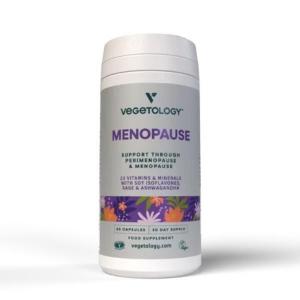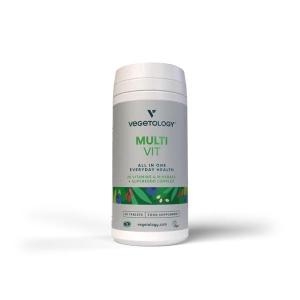
What are the medicinal effects of borax and what are the risks?

Borax is a substance that has sparked curiosity and questions among many in recent years. While some know it as a cleaning agent or a component of homemade laundry detergents, others seek its medicinal properties, often discussed in alternative medicine. But what is the truth behind this? Can borax indeed have positive effects on health, or is it more of an underestimated risk?
What is Borax and Where is it Used
Borax, chemically known as sodium tetraborate, is a natural mineral extracted from dried salt lakes or underground deposits. Its most common form is a white powder that dissolves well in water. In households, it is primarily known as an effective ecological cleaner, a laundry aid, and a more natural alternative to conventional chemicals.
It is also used in industry—for example, in glass production, enameling, or as a wood preservative. This is where its controversial reputation begins. On one hand, it is said to be harmless when used correctly; on the other hand, there are warnings about its toxicity and risks when mishandled.
Borax and Health – Facts vs. Myths
Discussions about the medicinal effects of borax have been spreading mainly on the internet in recent years, often in communities focused on alternative approaches to health. According to some claims, borax is supposed to help with joint inflammation, body detoxification, or even in the treatment of autoimmune diseases. There are also mentions that it supposedly supports the proper functioning of the hormonal system due to its natural boron content.
However, when looking at scientific sources, a reality check emerges—no reputable health institution has yet confirmed the medicinal effects of borax in humans. On the contrary, the European Food Safety Authority (EFSA) and the World Health Organization (WHO) warn that intake of boron in higher doses can be toxic. Borax is banned in the EU as a dietary supplement and cannot be marketed for internal use.
Nevertheless, there are people who claim that borax has helped them. For instance, in discussion forums, one can find a story of a woman suffering from osteoarthritis who began drinking water with a small amount of dissolved borax every morning. After a few weeks, she reportedly felt a significant improvement in joint mobility and a reduction in pain. However, it is important to realize that such stories are not supported by controlled clinical studies and cannot be considered as proof of efficacy.
Boron and Its Role in the Human Body
From a certain perspective, the claims about the health effects of borax are not entirely unfounded—the basis of these opinions is the presence of boron, an element that naturally occurs and is important for the human body in small amounts. Boron is involved in calcium metabolism, magnesium, thyroid function, and bone health.
Try our natural products
According to some studies, there is a link between boron deficiency and a higher likelihood of developing osteoporosis. In countries where the soil boron content is higher (e.g., in Israel), the incidence of this disease is lower. However, this does not mean it is safe or appropriate to supplement boron in the form of borax. There are safer alternatives for this purpose—such as dietary supplements containing boron, which are approved and dosed so as not to exceed the recommended daily intake.
The health benefits of boron are also being explored in connection with hormonal balance, especially in postmenopausal women. According to some research, boron may positively influence estrogen and testosterone levels, potentially helping to alleviate some symptoms of hormonal changes. Here too, however, safety and efficacy must be confirmed by proper studies.
Risks Associated with Borax Use
Any substance with potential biological effects carries certain risks. In the case of borax, this is primarily possible toxicity, especially with internal use. Long-term intake of higher doses can lead to irritation of the digestive tract, kidney disorders, or even reproductive system damage.
The U.S. FDA (Food and Drug Administration) and the European Chemicals Agency (ECHA) classify borax as a substance that may be toxic to reproduction, and its use is therefore regulated or completely banned in certain areas. Australian authorities also warn against its use as a dietary supplement and remind that improper dosing can lead to poisoning.
Therefore, it is crucial not to confuse the natural origin of a substance with its safety. Even natural substances can be dangerous in higher doses—just like arsenic or nicotine.
Ecological Use of Borax Without Risks
Although it is evident that the medicinal effects of borax are not scientifically proven, its use in the household remains relevant and safe—if used wisely. Its cleaning capabilities are appreciated especially by fans of ecological cleaning. Borax effectively removes stains, neutralizes odors, and has antibacterial properties.
For example, in cleaning kitchens or bathrooms, borax can be mixed with water into a paste that easily removes limescale or dirt from tile joints. In households with children and animals, the rule is to store it out of reach and not use it where accidental ingestion might occur. It's always important to strictly follow recommended procedures and wear protective gloves.
Its use in gardening is also interesting—in small amounts, borax can enrich the soil with boron, which is important for the proper growth of plants, especially fruiting vegetables. Here too, however, the rule is that less is more. Too much boron can damage the soil instead.
People Seek Alternatives – But It's Important to Differentiate
In times when more people are turning away from chemical medicines and seeking natural alternatives, it's no surprise that interest is growing in unconventional substances like borax. Often, this is driven by frustration from unsuccessful treatments, the desire for simpler solutions, or inspiration from others' stories.
However, it's wise to remember the words of scientist Carl Sagan: “Extraordinary claims require extraordinary evidence." Just because someone felt relief after using a certain substance does not mean that this substance has a therapeutic effect—especially if it can also be harmful.
In the case of borax, it's crucial to distinguish between its external use as a cleaning agent and its internal use, which is banned in the EU. If someone suspects a boron or other mineral deficiency, it is advisable to consult a doctor or nutrition expert who can recommend safe and verified forms of supplementation.
A practical example might be Ms. Jana from Olomouc, who suffered from joint pain and, after reading an article on a foreign blog, started consuming a homemade drink with borax. After a few days, she experienced abdominal pain and nausea. She sought medical help, where she was advised to discontinue the substance and focus instead on a balanced diet, exercise, and dietary supplements approved in the Czech Republic. She managed to alleviate the pain even without experiments.
Thus, borax remains an intriguing substance with a wide range of uses—but more in the area of cleaning than healthcare. Its medicinal effects are not scientifically proven, and since it can be dangerous when used internally, it's always better to look for safer alternatives. Interest in a healthy lifestyle should be based on verified information, not viral posts without expert backing.




